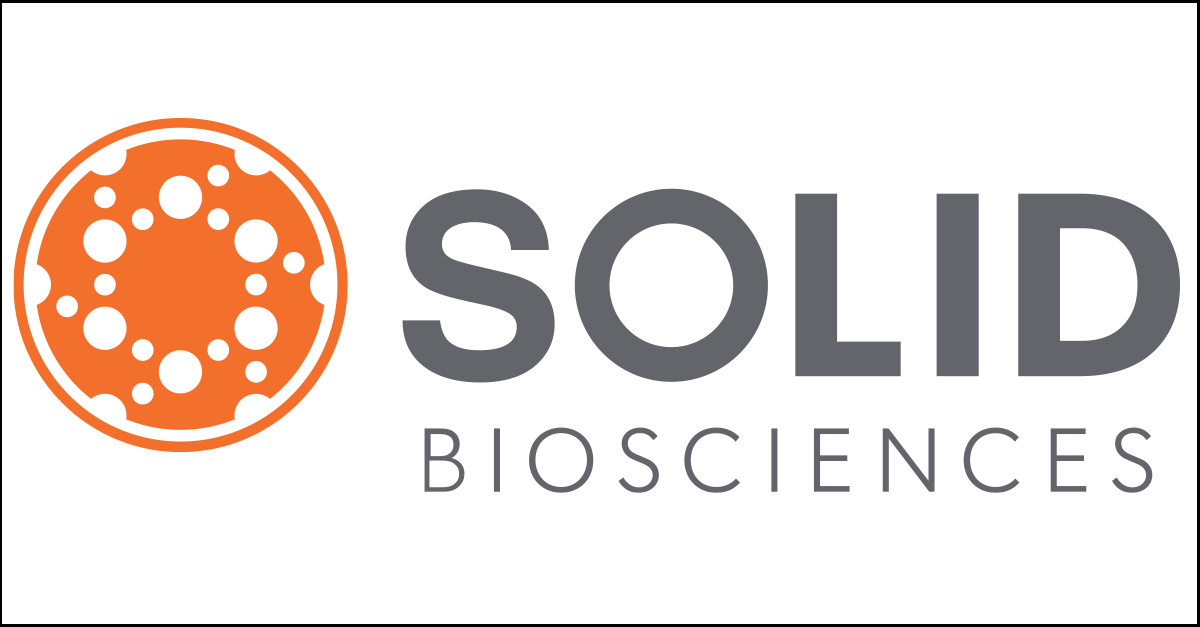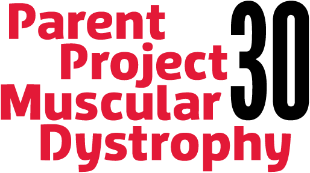
Solid Biosciences shared an update on the progress of their IGNITE DMD Phase I/II clinical trial for investigational microdystrophin gene transfer, SGT-001.
The update includes news about initiating dosing for their higher dose cohort of patients and new recruitment information, including an additional site.
We look forward to learning more about IGNITE DMD at PPMD’s Annual Conference next month.
Solid’s Letter to the Duchenne Community
Dear Duchenne Community,
We want to provide you with an update on the progress of our IGNITE DMD Phase I/II clinical trial for our investigational microdystrophin gene transfer, SGT-001. Since we communicated preliminary clinical data in February, we advanced the study to evaluate SGT-001 at a higher dose in the second cohort of patients. As a reminder, IGNITE DMD is a single ascending dose clinical trial, meaning that it is designed to evaluate progressively higher doses of SGT-001. Based on our preclinical data, we believe that higher doses of SGT-001 will express more microdystrophin. This new dose, 2E14 vg/kg, is four times higher than our starting dose of 5E13 vg/kg.
Recently, the first two patients in this higher dose cohort were enrolled, one randomized to the treatment group and one randomized to the delayed-treatment control group. Similar to others who have received SGT-001, the patient in the treatment arm experienced a transient decline in platelet count shortly after dosing, which fully resolved. He was also diagnosed with a non-SGT-001-related gastrointestinal infection, which responded to treatment. We observed transient abnormalities on laboratory tests that measure liver function that quickly responded to an increased dose of oral steroids. We notified the FDA and can share with you that the patient is doing well and has resumed his normal activities.
IGNITE DMD is ongoing and continues to be open for enrollment at the University of Florida. We are pleased to share new U.S. clinical sites will be coming on board, including the University of Massachusetts Memorial Medical Center, led by Dr. Brenda Wong. Activities are underway to begin enrollment. For information on inclusion and exclusion criteria for IGNITE DMD and additional details on screening, we encourage you to visit clinicaltrials.gov.
We believe that SGT-001 has the potential to be an important therapy for patients with Duchenne, and we are working hard to progress SGT-001 through clinical development quickly and responsibly. We look forward to continuing to keep you updated as the study advances.
Sincerely,
The Solid Biosciences Team
Click here to read the full letter.
Read Solid’s Press Release
CAMBRIDGE, Mass., May 13, 2019 (GLOBE NEWSWIRE) — Solid Biosciences Inc. (Nasdaq: SLDB) today reported financial results for the first quarter ended March 31, 2019 and provided a business update.
“We have continued to advance our programs for Duchenne muscular dystrophy over the last few months, particularly our lead microdystrophin gene therapy candidate, SGT-001. Building on our findings from the preliminary Phase I/II clinical data that we announced in February, we initiated dosing at 2E14 vg/kg in the second cohort of patients,” said Ilan Ganot, Chief Executive Officer, President and Co-Founder of Solid Biosciences. “Now, we are working to progress as quickly as possible, and we look forward to providing additional data later this year.”
Recent Developments
- Today, Solid announced that two patients have been randomized in the second cohort of the Phase I/II IGNITE DMD study, including one patient dosed with 2E14 vg/kg of SGT-001 and another added to the control group. Shortly after dosing, the patient in the treatment group was diagnosed with a gastrointestinal infection that was classified as a serious adverse event unrelated to study drug, as well as a transient decline in platelet count that was considered a non-serious adverse event related to study drug; these events have fully resolved. In addition, the patient experienced a transient elevation of transaminases, as well as a transient increase in bilirubin higher than two times the upper limit of normal, which was rapidly resolved with an increase in oral glucocorticoids. This was reported to the FDA as a serious adverse event related to study drug. The patient is doing well and has resumed normal activities. Solid continues to enroll patients in IGNITE DMD per the study protocol and anticipates providing additional data later this year.
- Solid recently initiated clinical trial activities for IGNITE DMD at additional sites, including the University of Massachusetts Memorial Medical Center. Screening continues at the University of Florida, the first clinical site for the study.
- In late April, the Company presented additional preclinical data for SGT-001 at the 22nd Annual Meeting of The American Society of Gene and Cell Therapy (ASGCT), which reinforce its potential to promote unique microdystrophin expression and rescue muscle function. Solid also presented new preclinical data at the meeting supporting its next generation gene therapy programs.
Financial Highlights
Research and development expenses for the first quarter of 2019 were $23.3 million, compared to $11.9 million for the prior year period. The increase was primarily attributable to research and development personnel and related facility costs, manufacturing costs, and clinical development costs for SGT-001.
General and administrative expenses for the first quarter of 2019 were $7.0 million, compared to $4.0 million for the prior year period. The increase was primarily attributable to increased personnel costs and other corporate expenses associated with being a public company.
Net loss for the first quarter of 2019 was $29.6 million, compared to $15.9 million for the first quarter of 2018.
Solid had $94.7 million in cash, cash equivalents and available-for-sale securities as of March 31, 2019, compared to $122.5 million as of December 31, 2018.
About SGT-001
Solid’s lead candidate, SGT-001, is a novel adeno-associated viral (AAV) vector-mediated gene transfer under investigation for its ability to address the underlying genetic cause of Duchenne muscular dystrophy (DMD), mutations in the dystrophin gene that result in the absence or near-absence of dystrophin protein. SGT-001 is a systemically administered candidate that delivers a synthetic dystrophin transgene, called microdystrophin, to the body. This microdystrophin encodes for a functional protein surrogate that is expressed in muscles and stabilizes essential associated proteins, including neuronal nitric oxide synthase (nNOS). SGT-001 utilizes AAV9, which has an affinity for muscle and is currently being evaluated in multiple clinical programs in other indications. Data from Solid’s preclinical program suggest that SGT-001 has the potential to slow or stop the progression of DMD, regardless of genetic mutation or disease stage.
SGT-001 is based on pioneering research in dystrophin biology by Dr. Jeffrey Chamberlain of the University of Washington and Dr. Dongsheng Duan of the University of Missouri. SGT-001 has been granted Rare Pediatric Disease Designation, or RPDD, and Fast Track Designation in the United States and Orphan Drug Designations in both the United States and European Union.



 by: Parent Project Muscular Dystrophy
by: Parent Project Muscular Dystrophy

